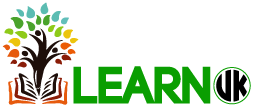How to Get More Marks in your Assessment
We all know how important getting a good education is in establishing our career in the future. During the first few years, our immaturity and recklessness have made us stray off the path of academic excellence. We gain other – worldly experience and get distracted by new discoveries.
But the stakes get exponentially higher when you reach your Preliminary Year or Year 11. By the fourth term, most of you will start Higher School Certificate. In the balance is your future for higher education and potentially your career thereafter.
The HSC is the highest educational award you can attain in New South Wales. By Year 10, you will be required to choose the HSC courses you want to study. Regardless of the courses, you need to take at least two units of English.

50% of your HSC score for a subject is based on the results of your assessment tasks. The balance of 50% is covered by your exam results.
Assessment tasks are designed to highlight your level of competency in a subject. Examples of assessment tasks are tests, written assignments, projects, remote field work and practical application of theories.
When you start the journey for your HSC, you can expect to do three to five assessment tasks. The school will provide you with all the information you need to complete your assessment tasks accordingly.
Honesty is a quality that is given premium consideration in marking your assessment. Plagiarism, cheating, malpractice and other activities considered to be malicious in intent and self- serving are greatly discouraged. If you are caught and proven to be dishonest, you will get zero marks for your assessment task.
So how do you get more marks for your assessment tasks?
- Seek consultation
Assessment tasks are conceptualized and marked by teachers in your school. If your teacher did not author the assessment, there is great probability that he has seen it or is familiar with its content.
Do not hesitate to consult with your teacher on the assessment task. Among the things you may want to ask your teacher are:
- What is the marking criterion for the assessment?
- Would you know the content of the assessment?
- Do you have samples of the best assessments over the last few years?
- Could you recommend a past paper or set of textbook questions we can review for reference?
Teachers are among the nicest people in the world. And contrary to what you might think, 99% of them are more than willing to help you get more marks on your assessment.
They have been on this same road as before and know the value of having someone to guide the students on the right path.
- Focus on learning the content
As Bill Gates once said, “content is king” and this applies even to your assessment tasks.
Students who early in their assessment tasks are able to understand its content will be ahead of the race. At the start, the content for these tasks is still very fresh. Teachers want to see your ability to comprehend new concepts before these are further developed.
Once you have content firmly in your grasp, everything else will fall into place as you continue with your assessment tasks.
- Establish good study habits
As I stated earlier, the stakes are higher when you reach the Preliminary year. If you have been lollygagging about the last few years, it’s about time to hunker down and get serious.
It may be difficult, but if in your assessment, you have not put your best foot forward in your studies, it is never too late to start learning good study habits.
Here are a few tips to get you going:
- Set a study schedule and abide by it.
- Find a good place to study that is conducive to learning.
- Remove all distractions.
- Set up a study group at least once a week.
- Consult with a teacher or a trusted adviser
Staying disciplined and committed to these study habits will always lead to better results. You will be more confident and less pressured when working on your assessment tasks.
- Uncover the marking criteria
Most students overlook the value of the marking criteria. But it serves as a valuable reference guide on how to get more marks for your assessment.
The marking criteria are created by teachers. As discussed earlier, do not hesitate to ask your teacher about the marking criteria.
You should also check the back of your assessment task. The marking criteria are usually attached. Once you’ve seen it, make it your goal to check every element of the criteria.
As challenging as the tasks may be, these are within your capability to get the desired marks on your assessment. Your mind set should be to “leave no stone unturned”. The HSC is a completion. You must find ways to stay ahead of the pack.
